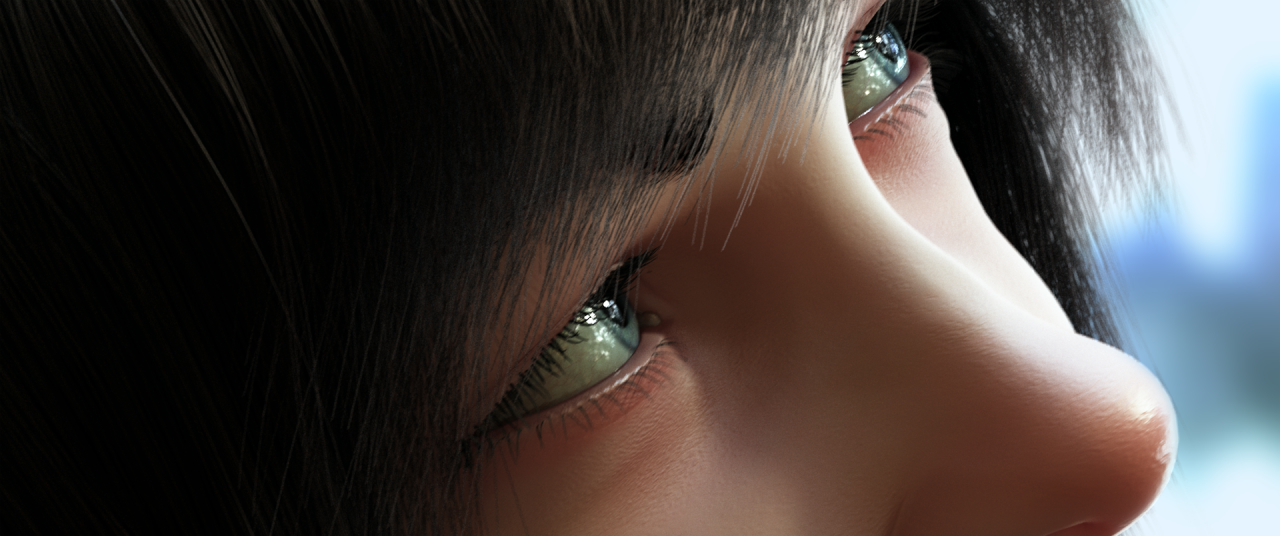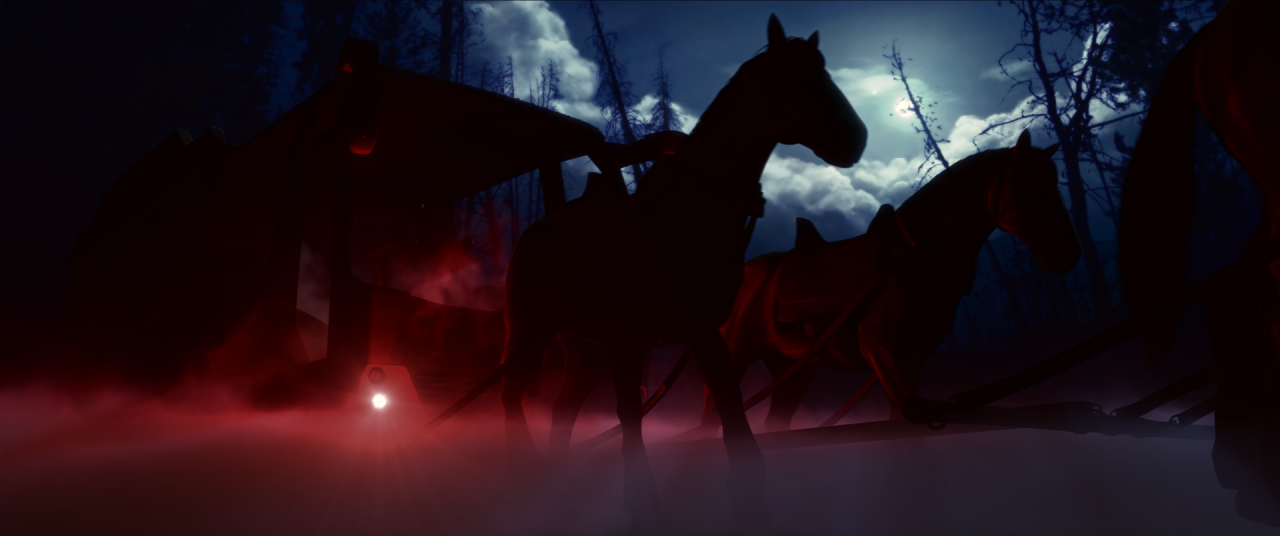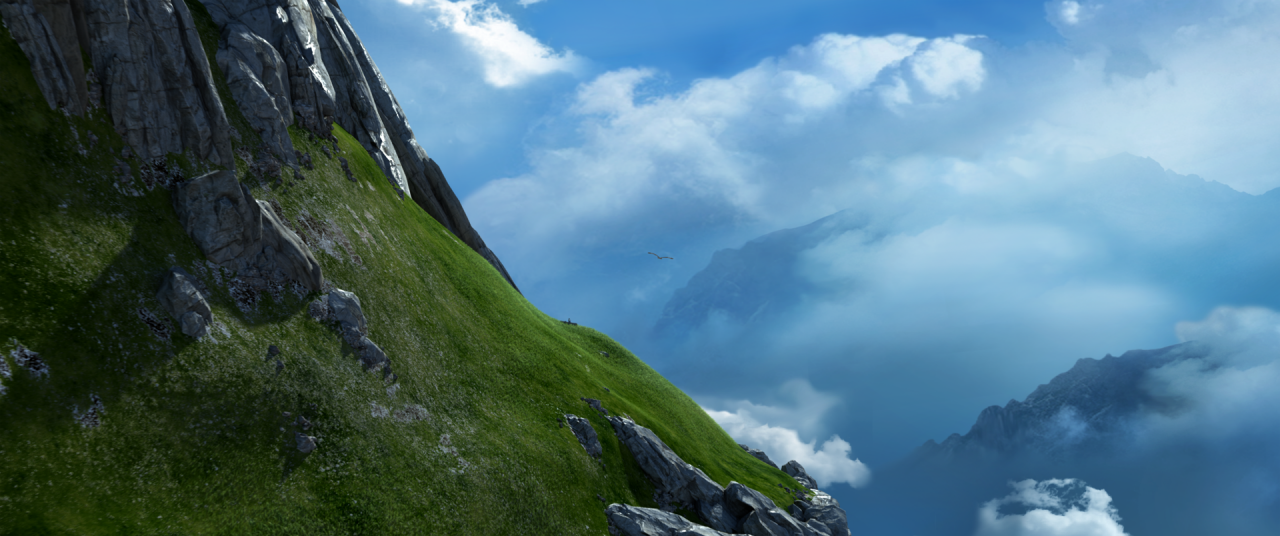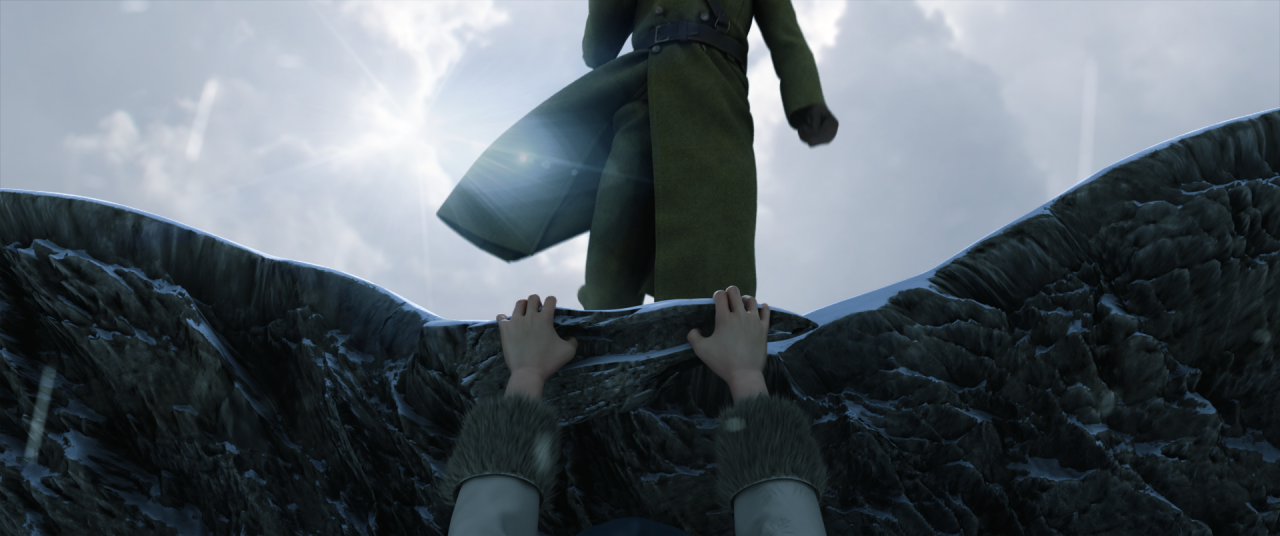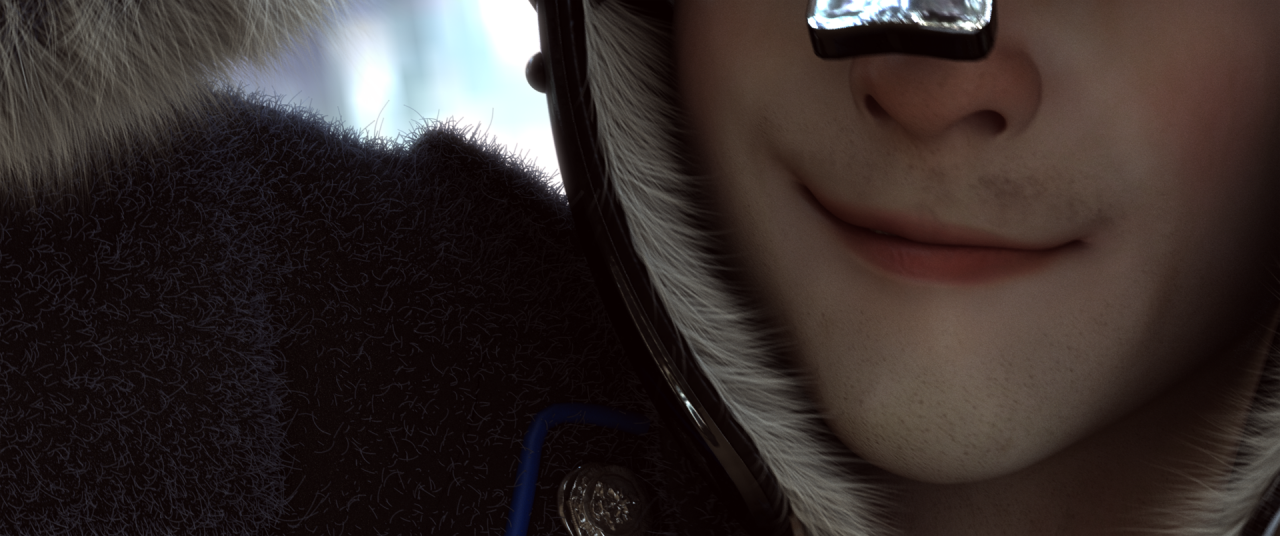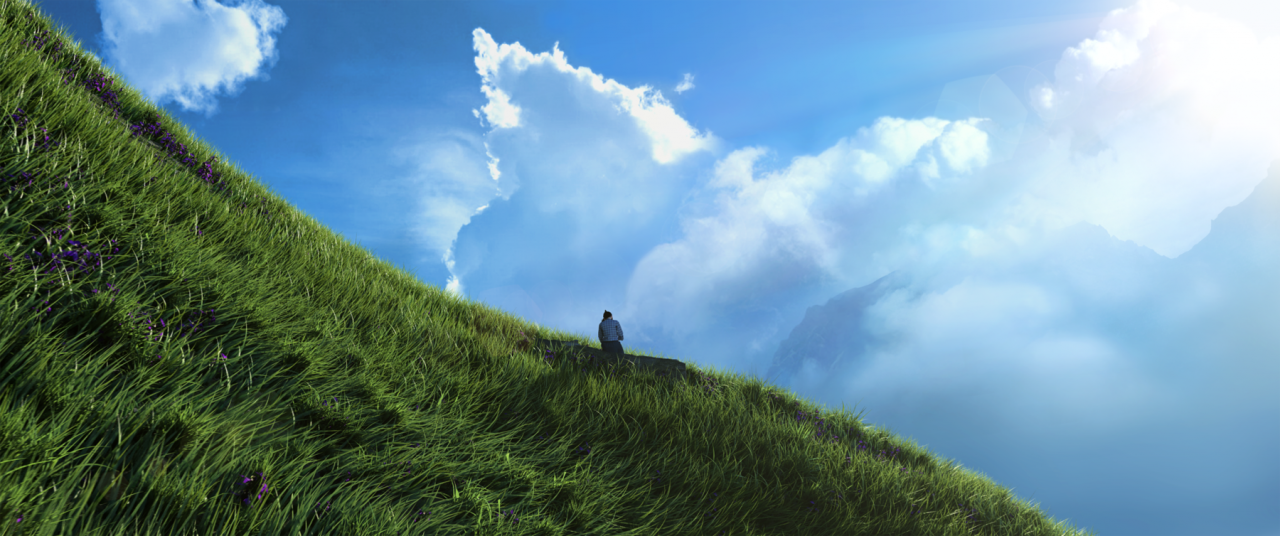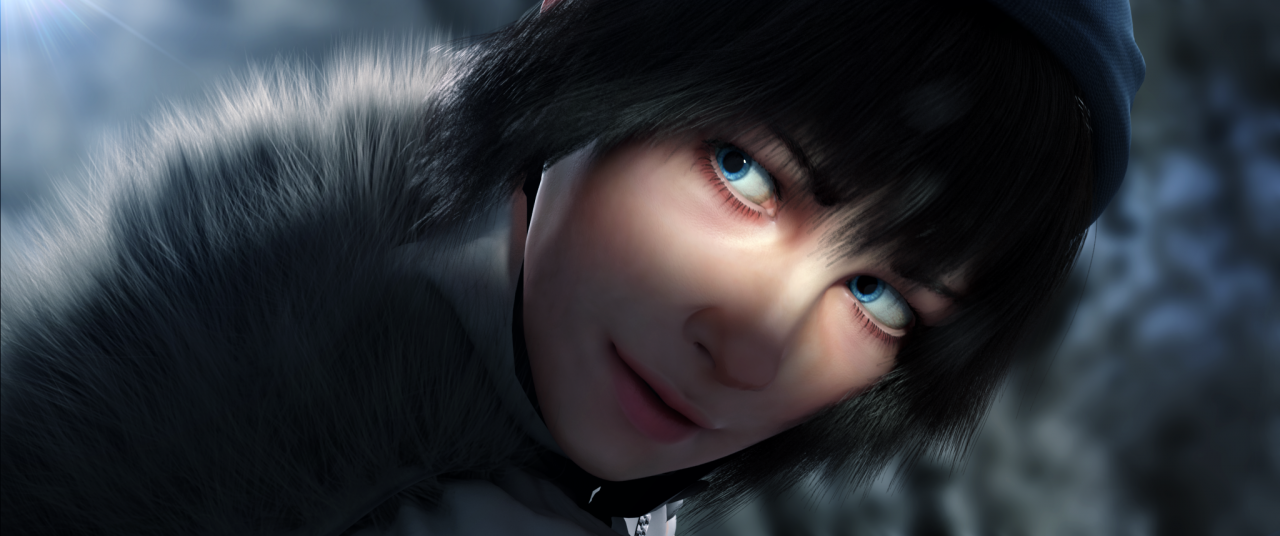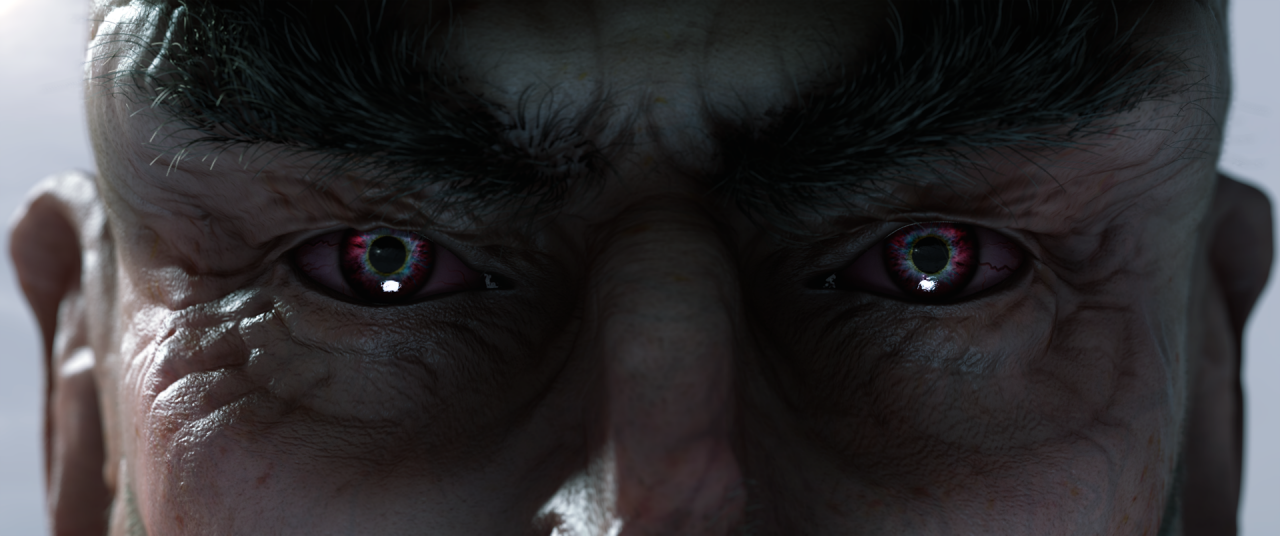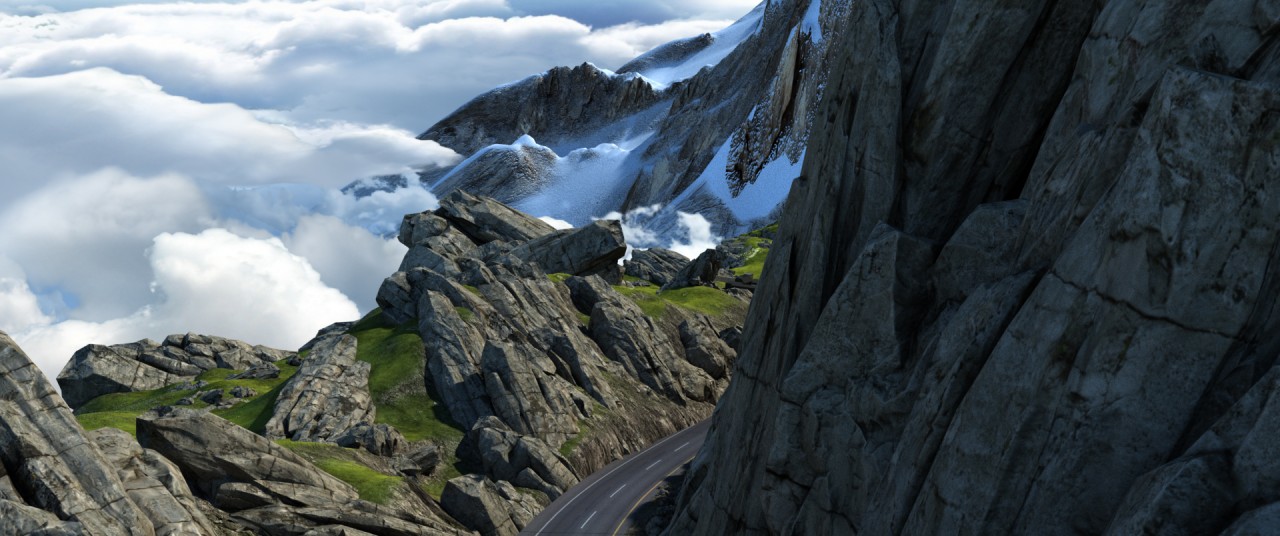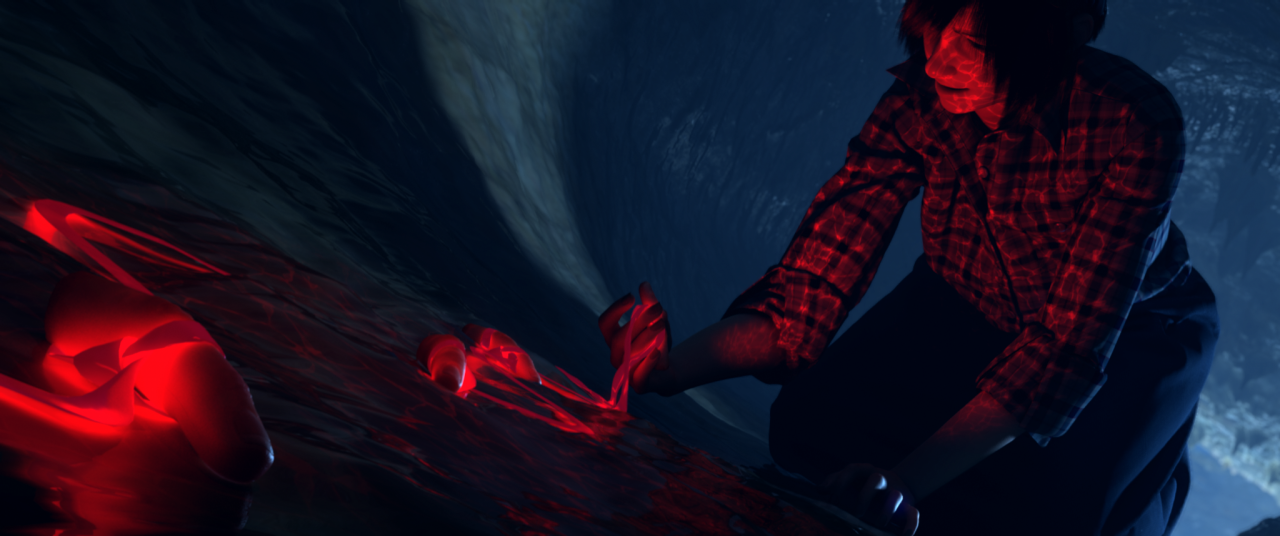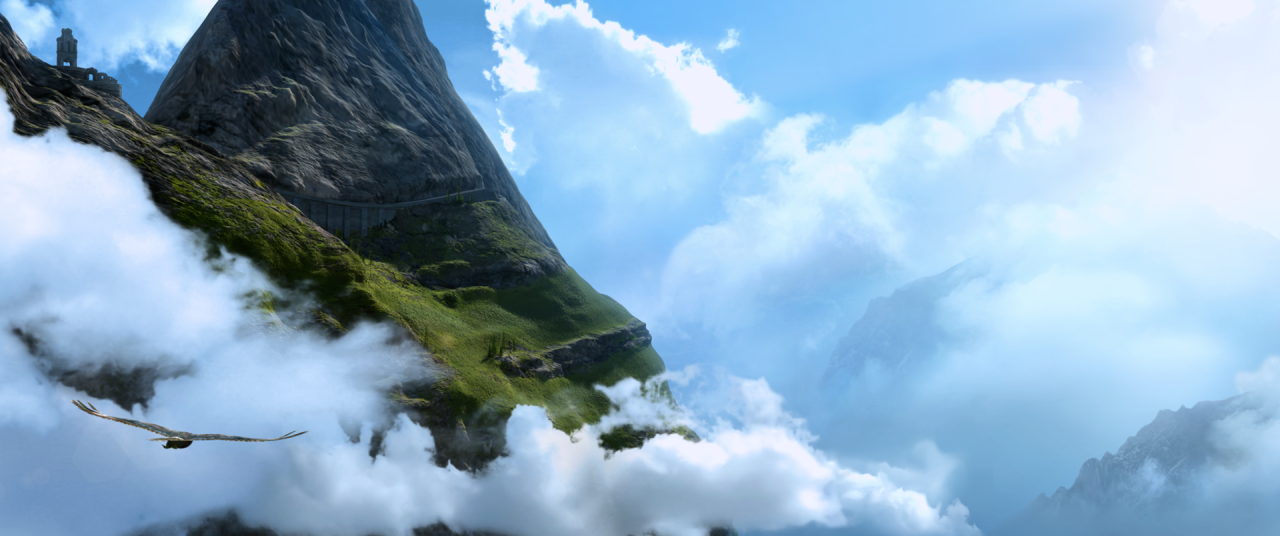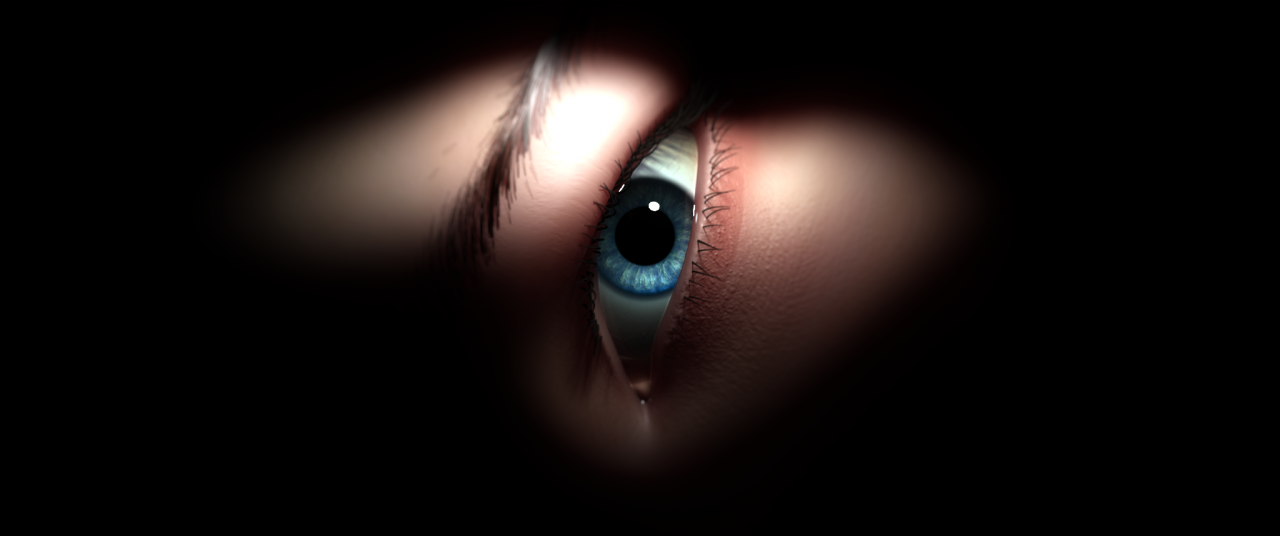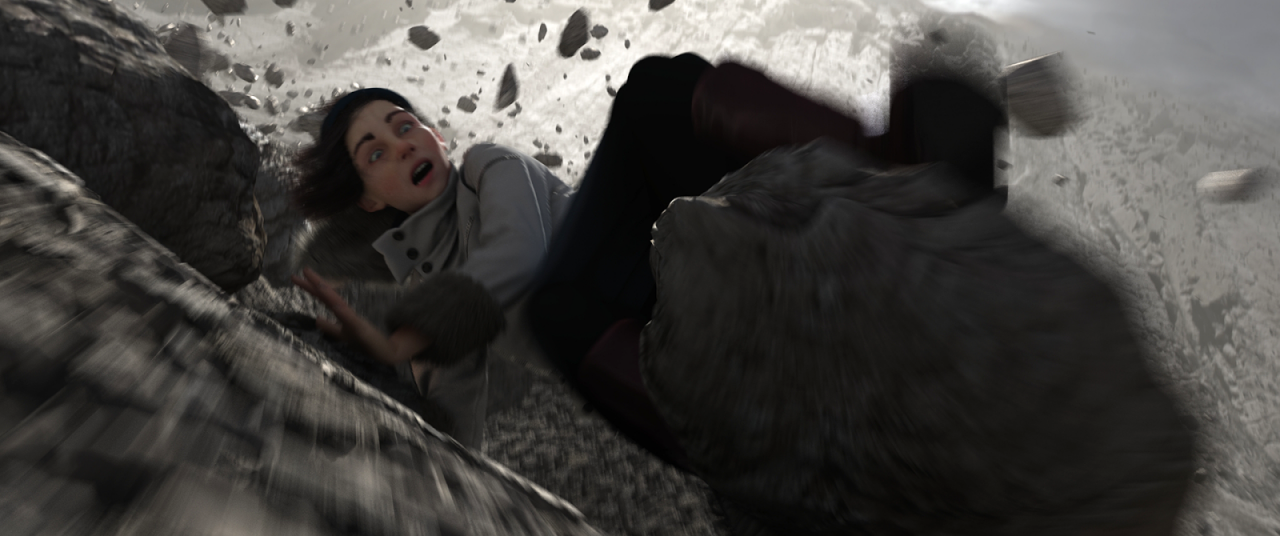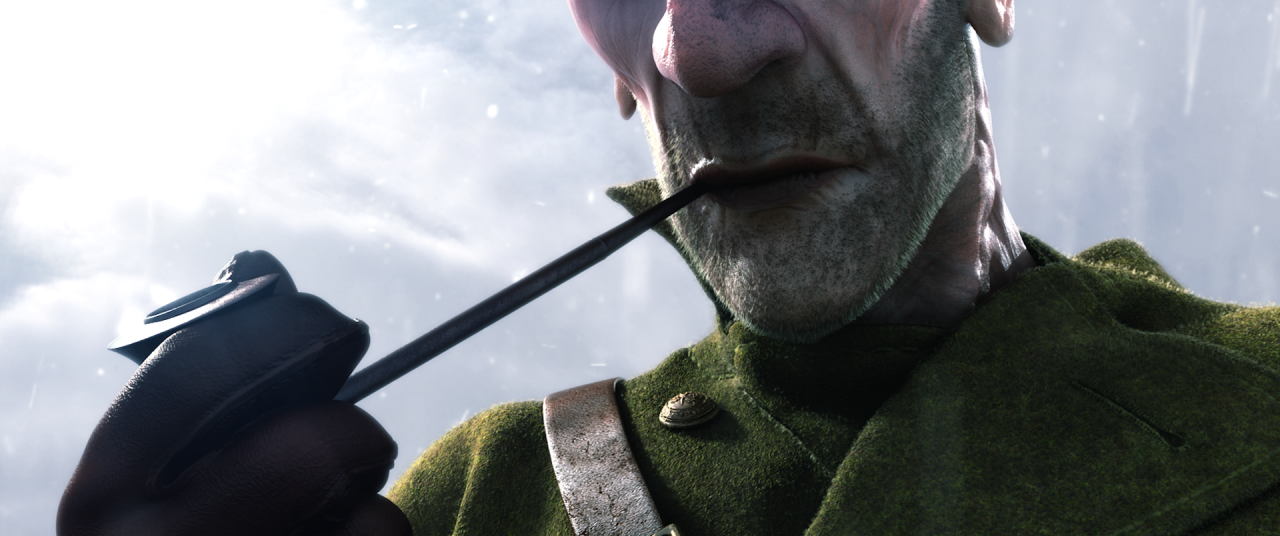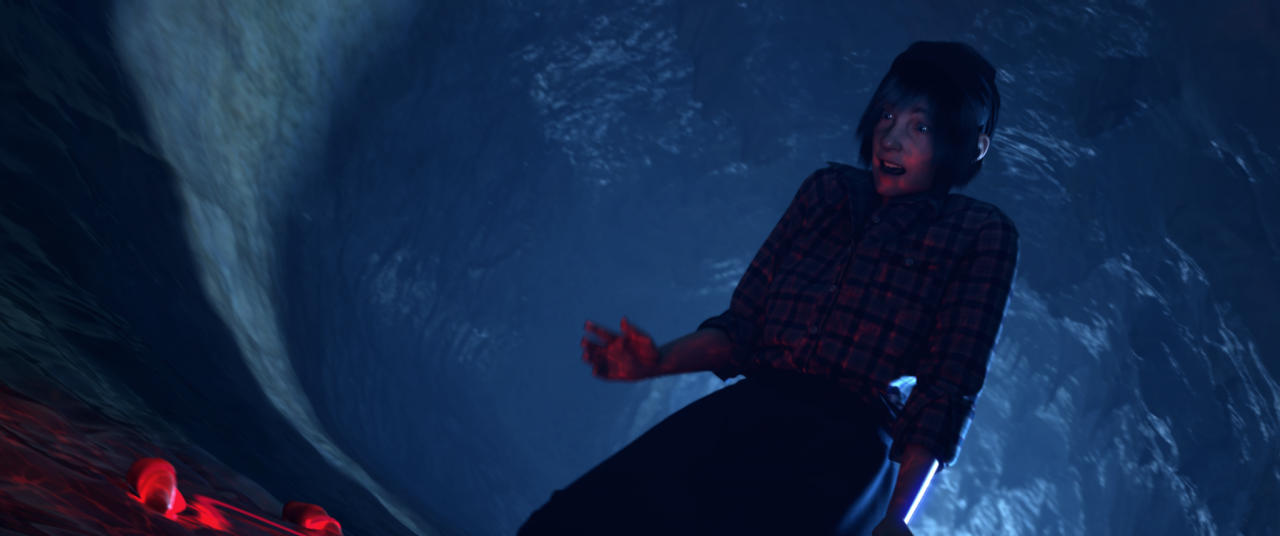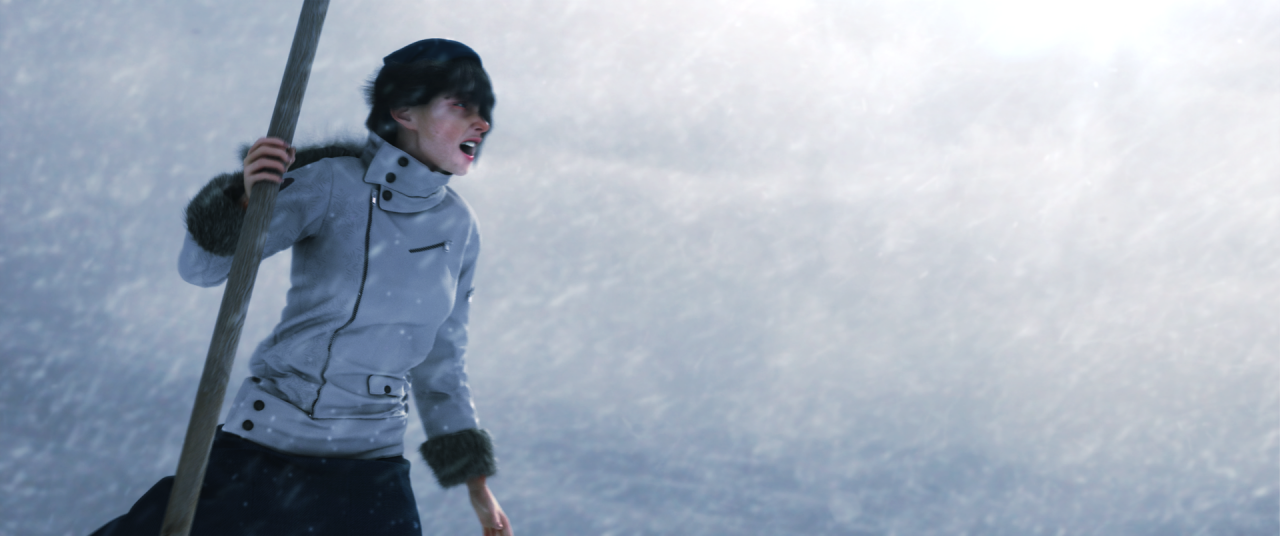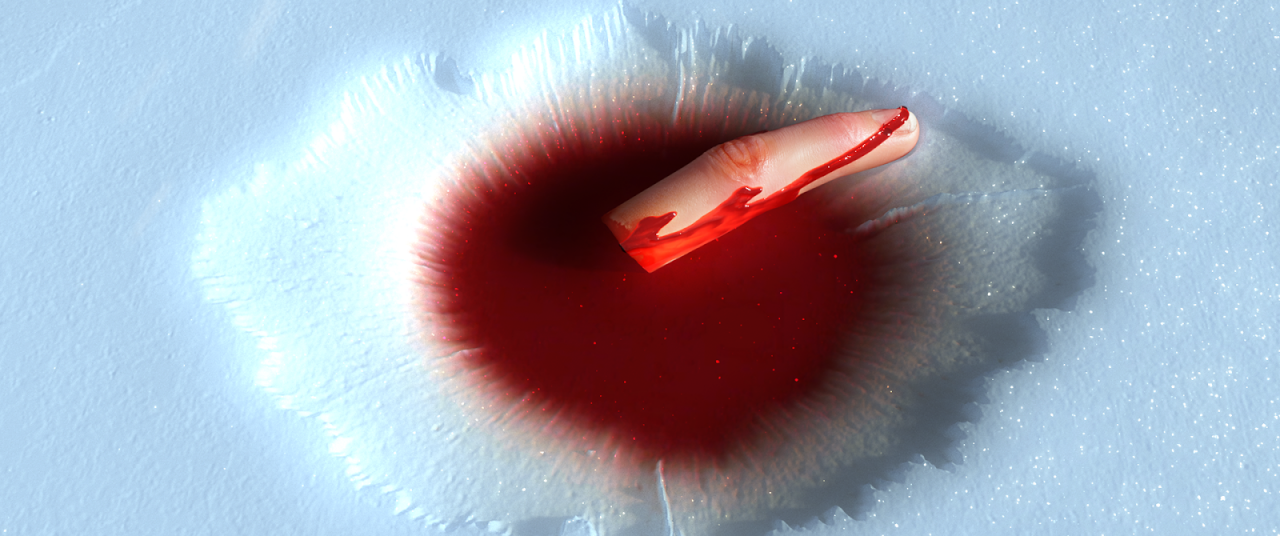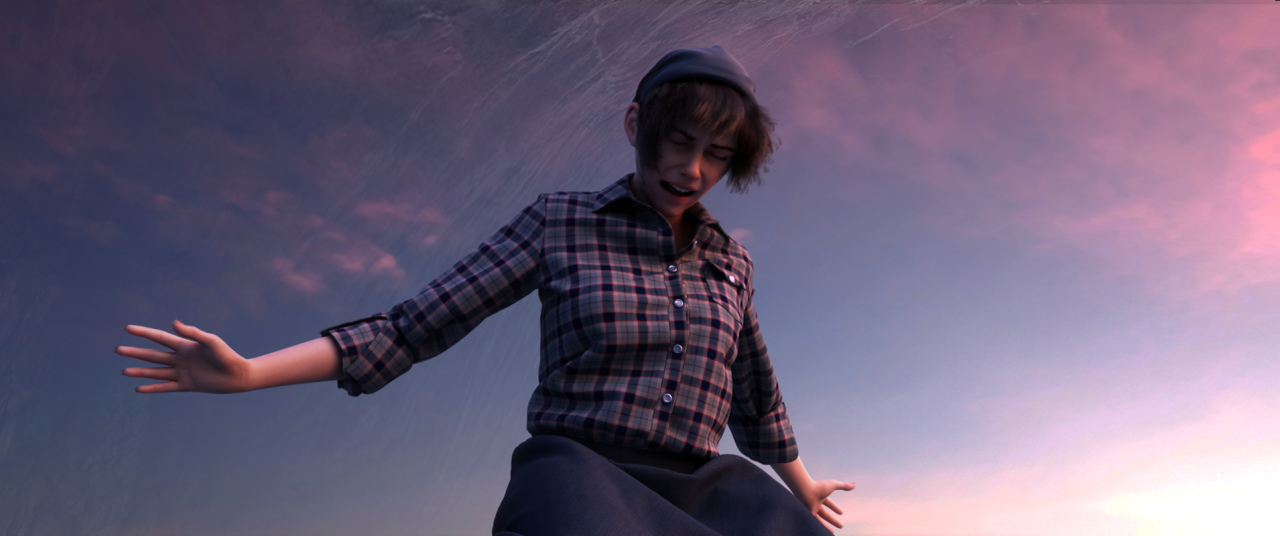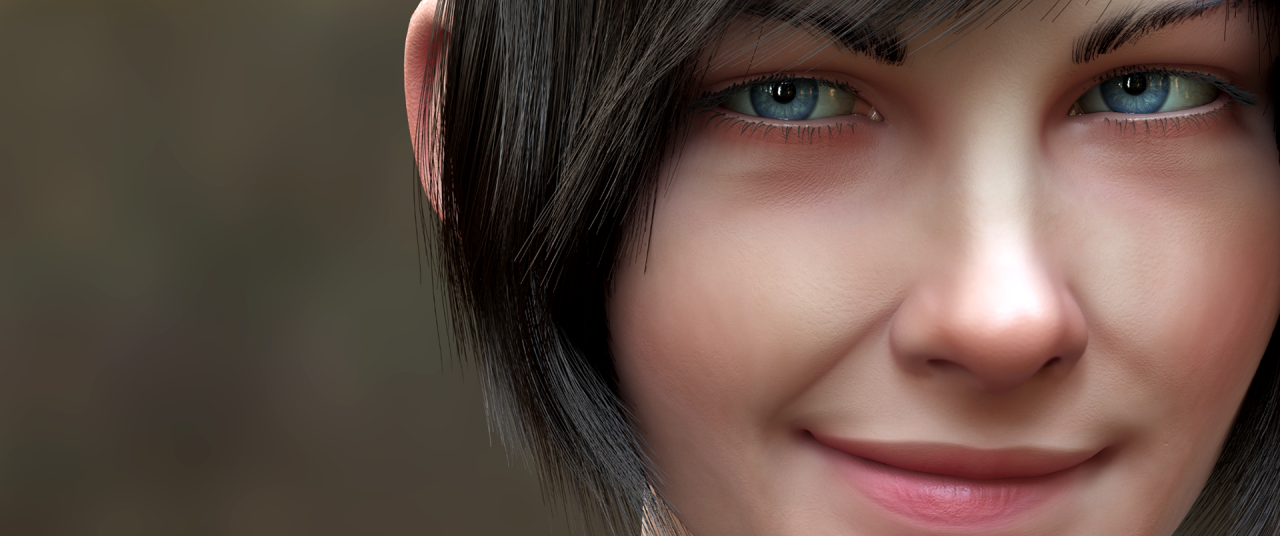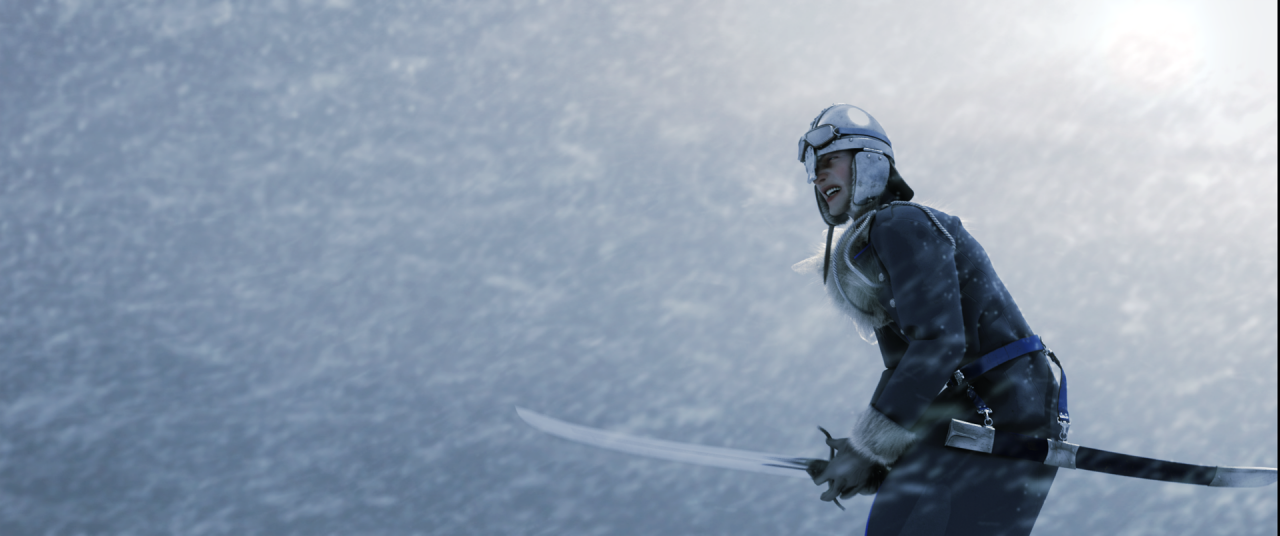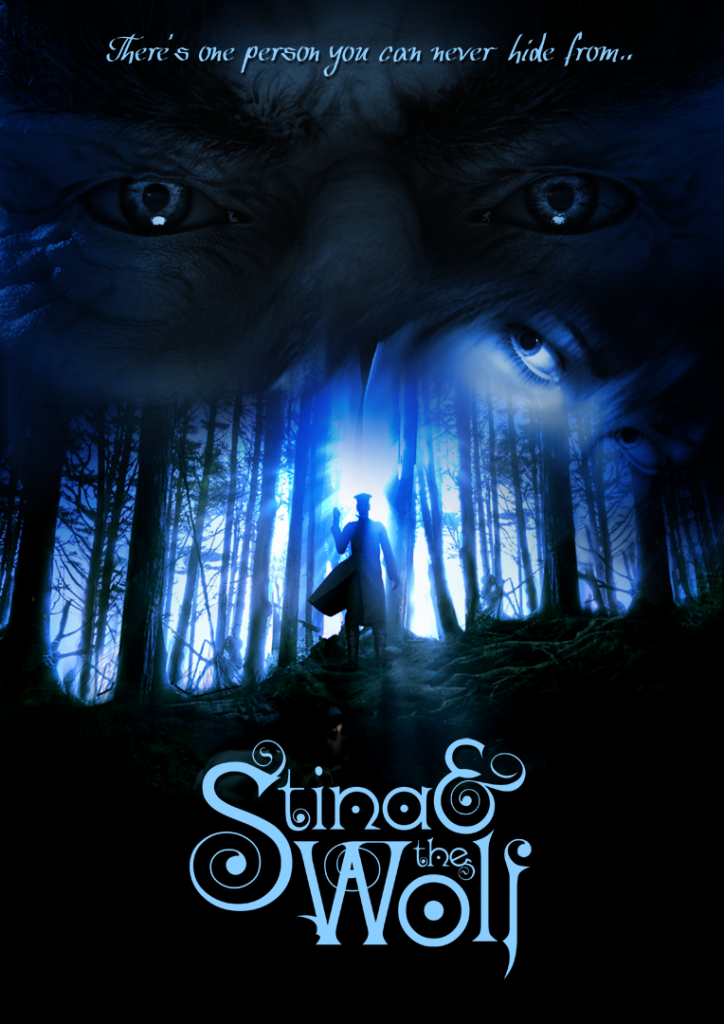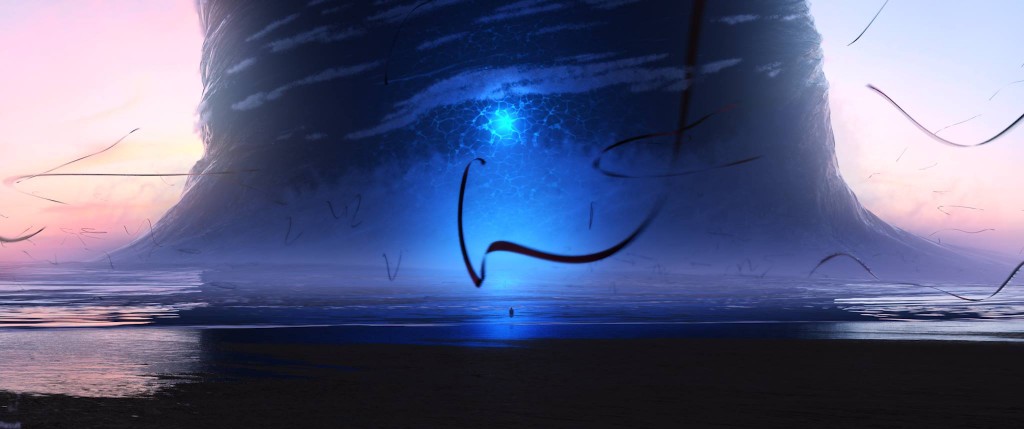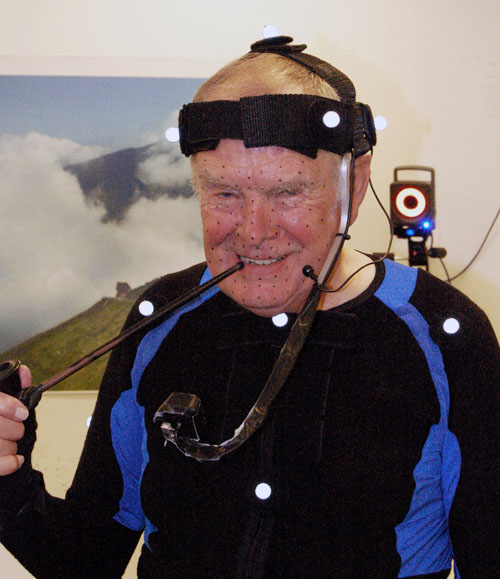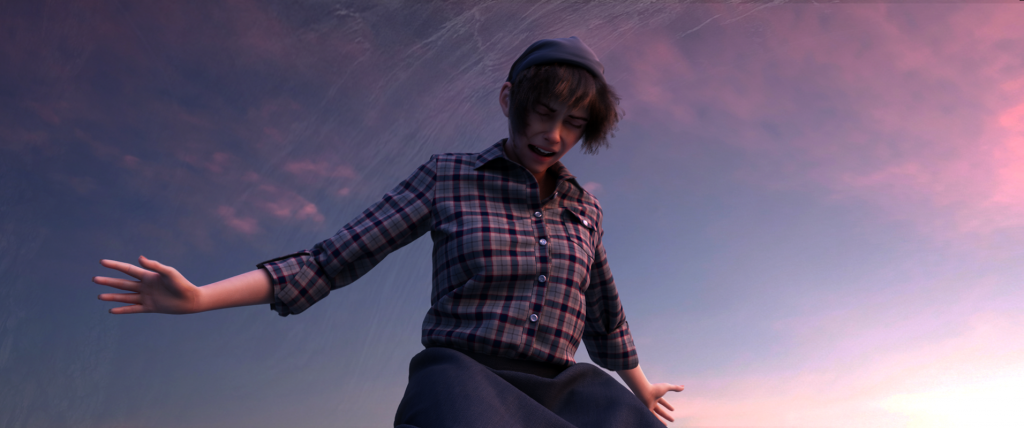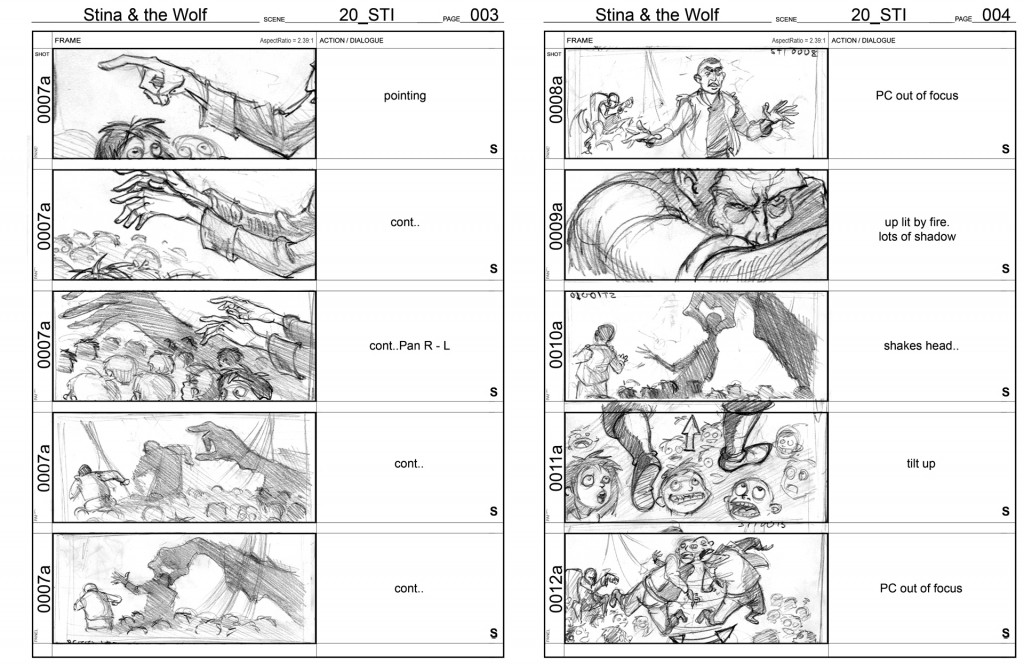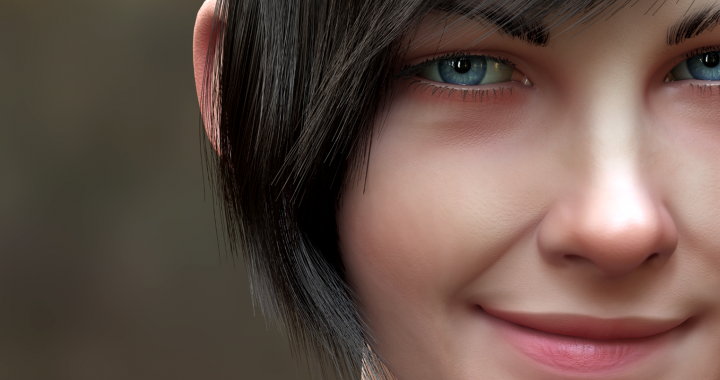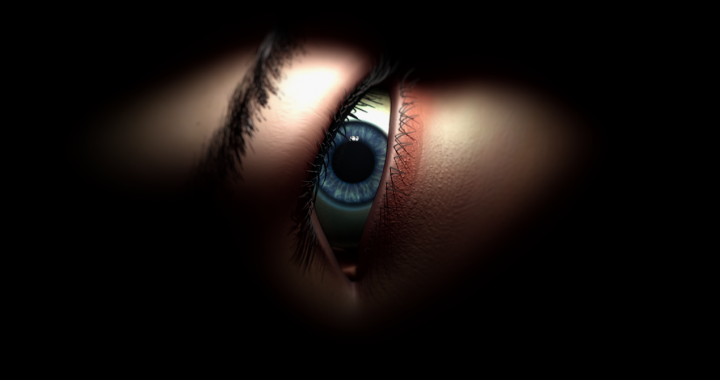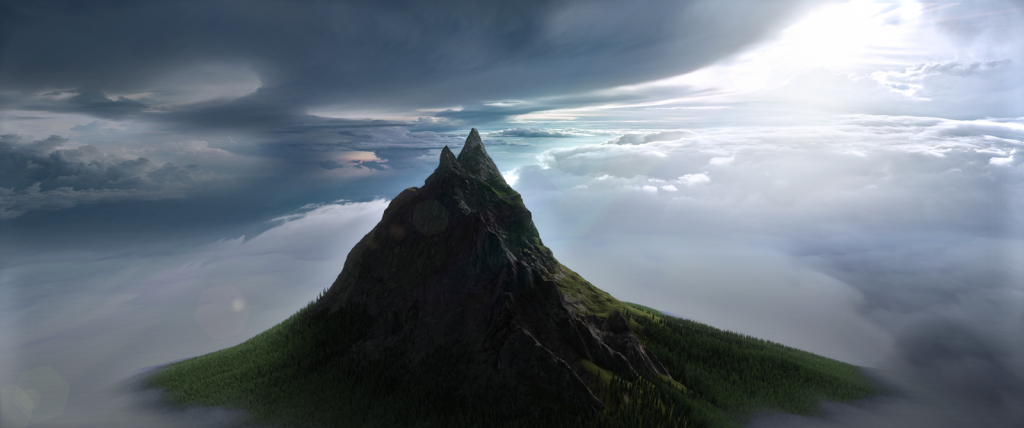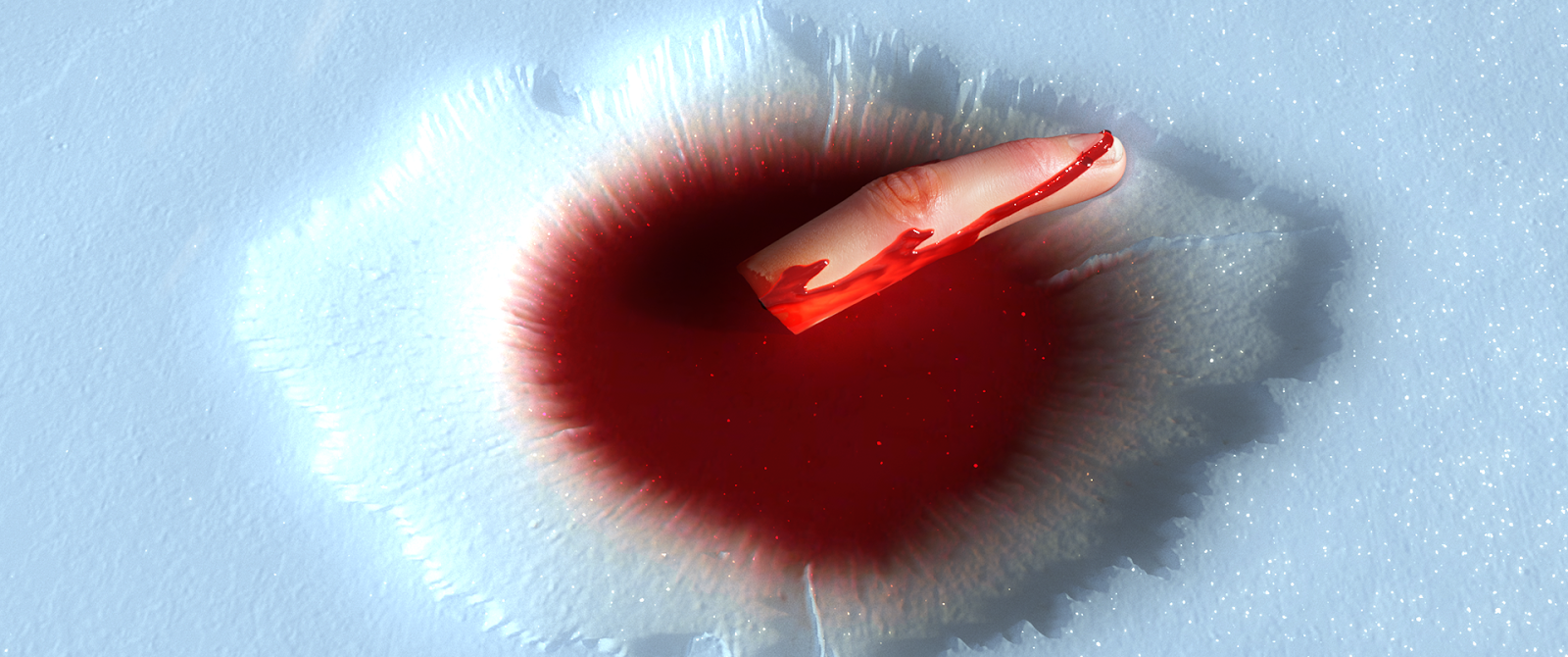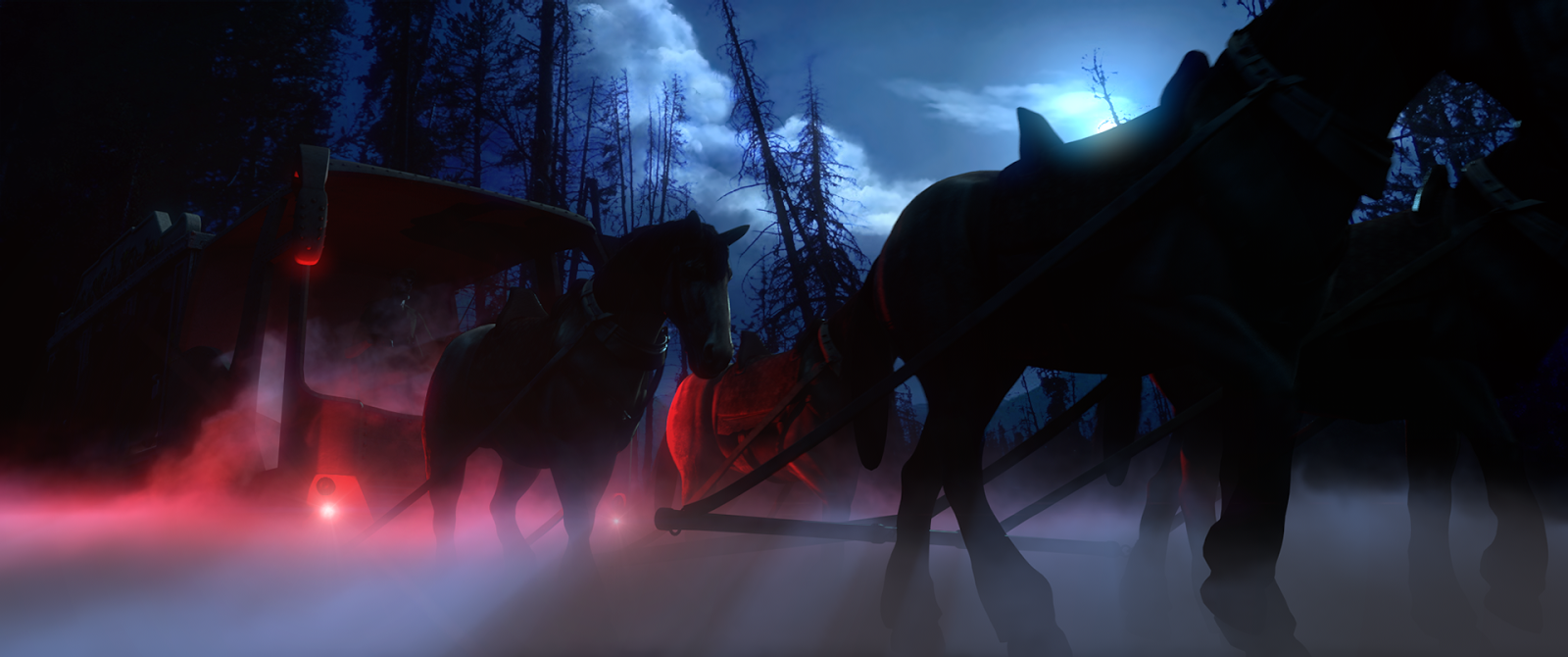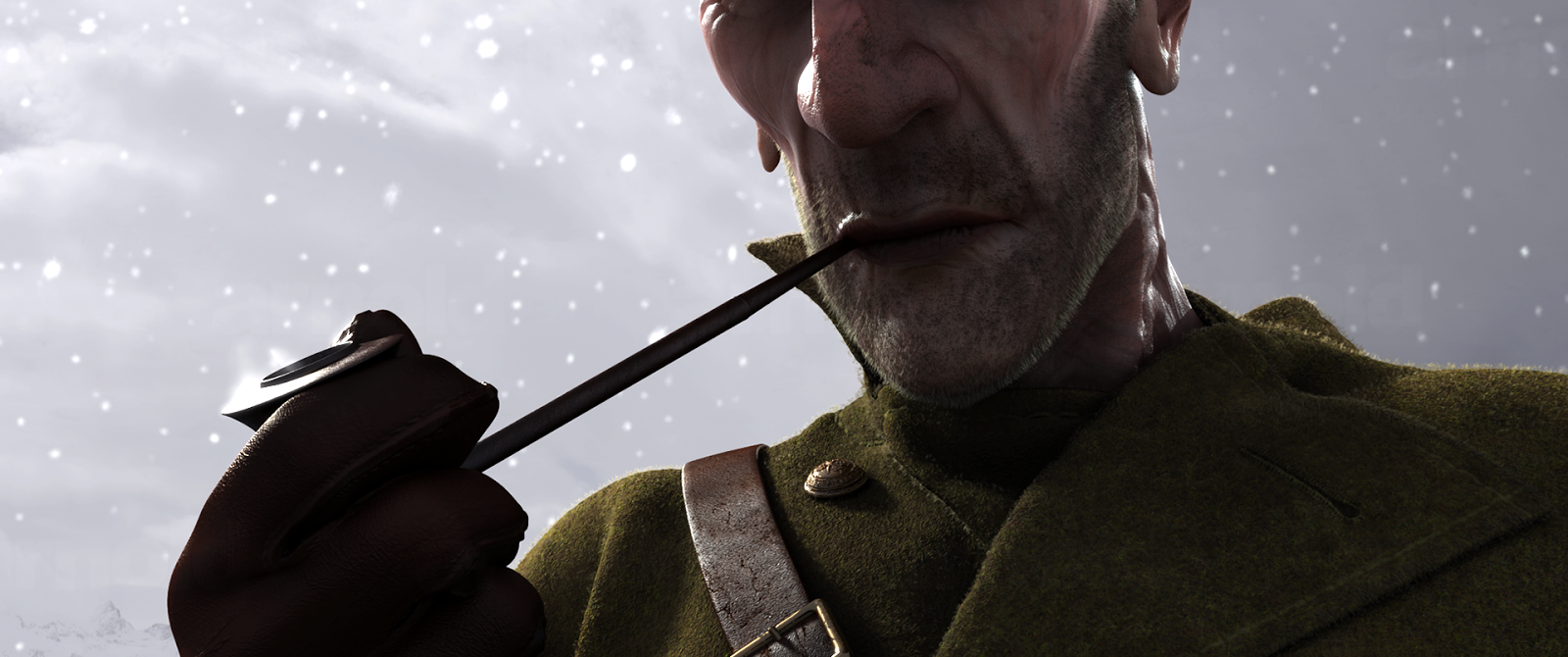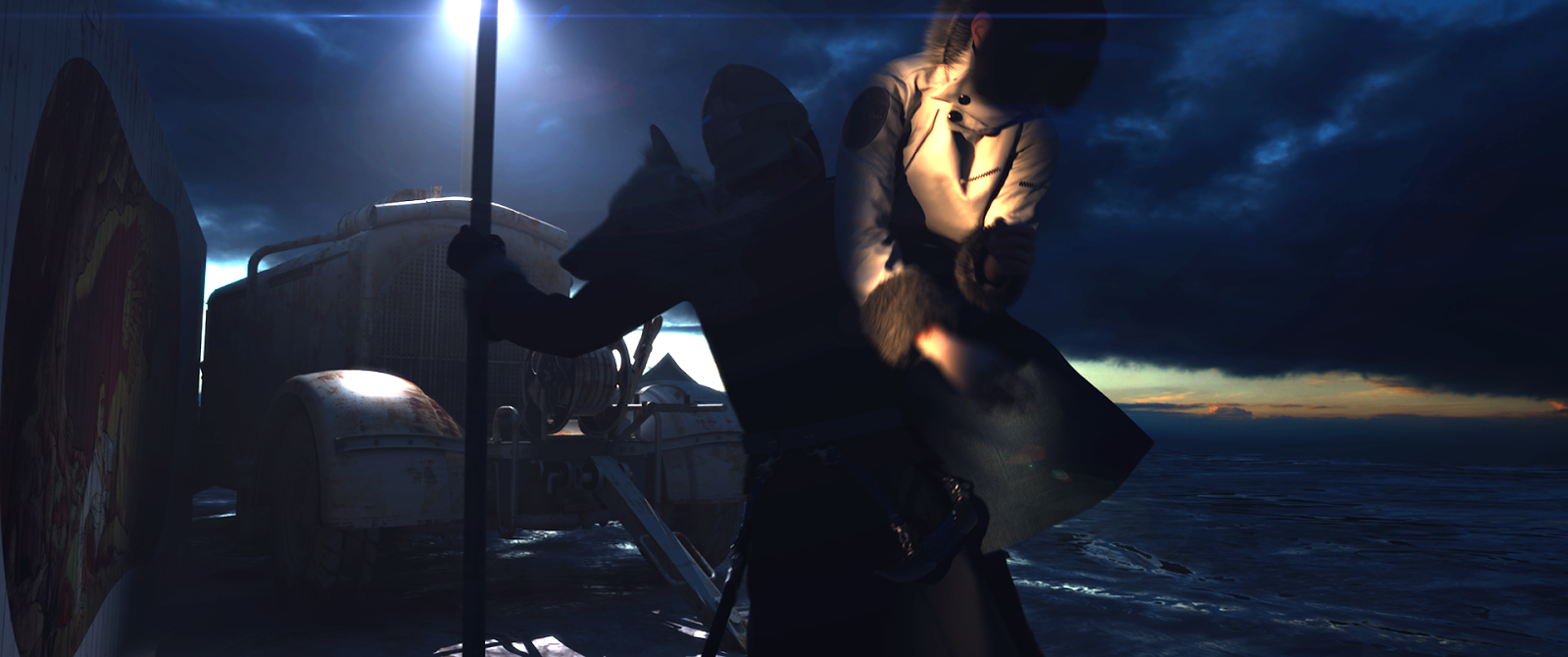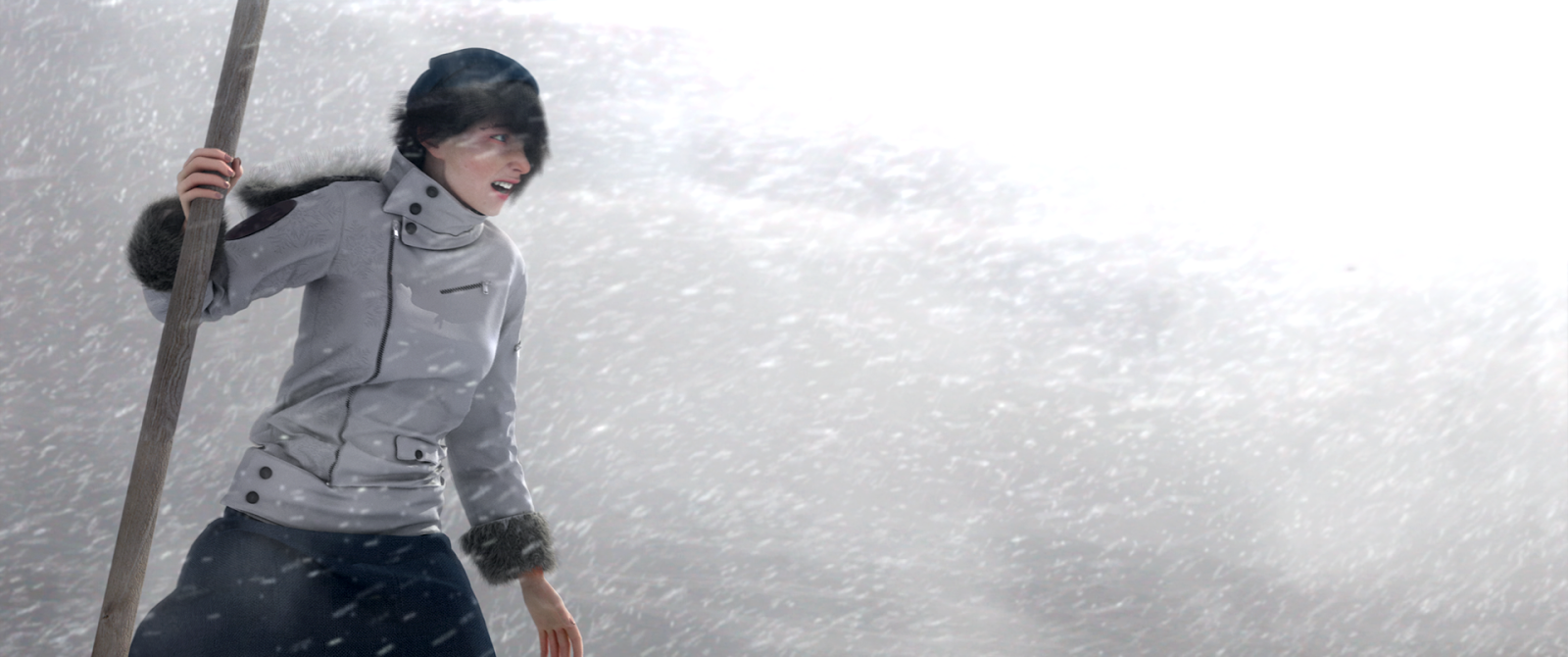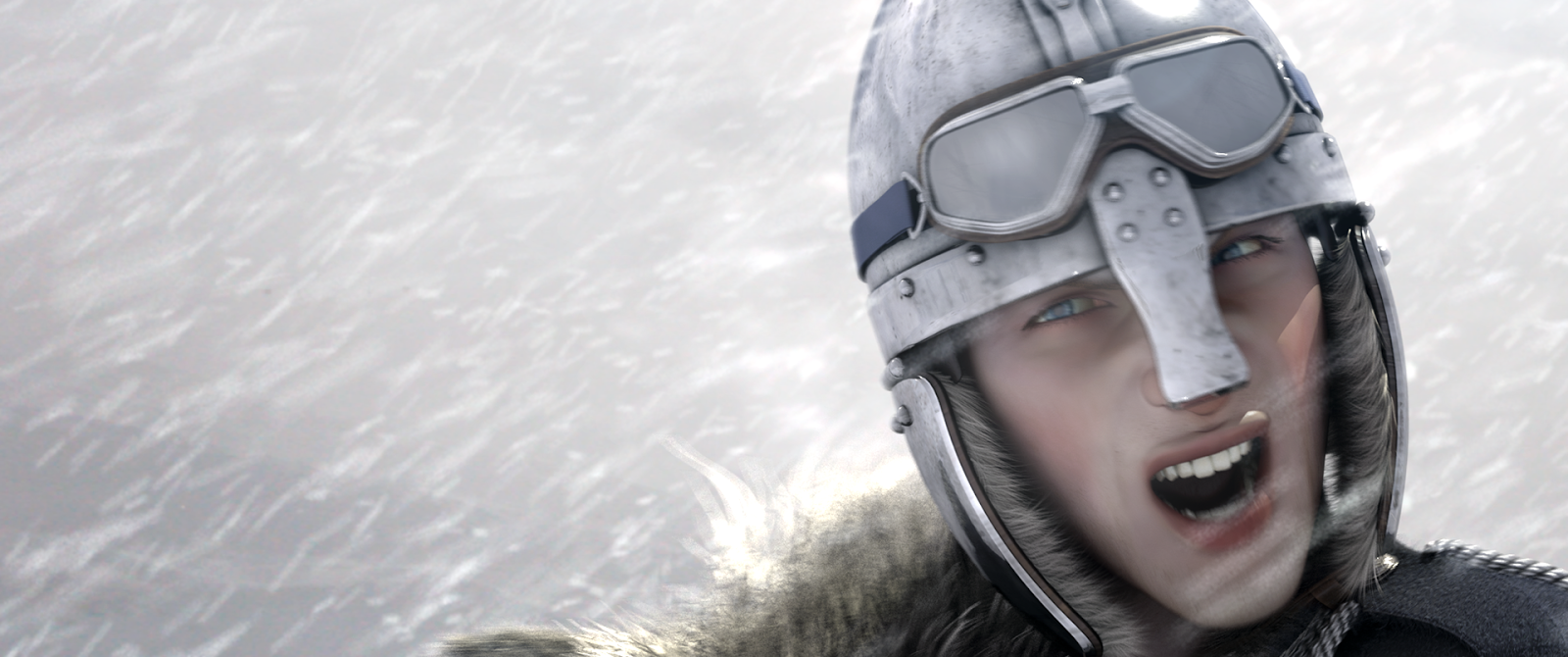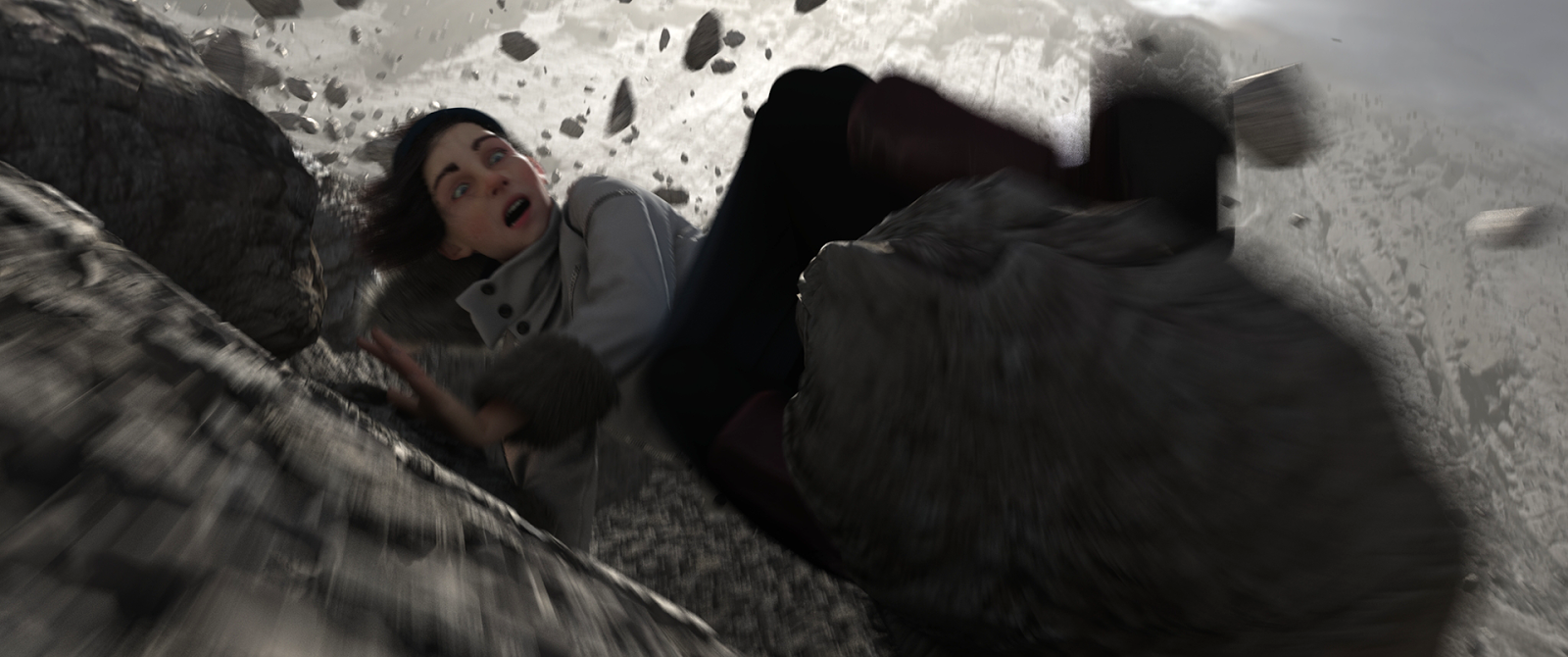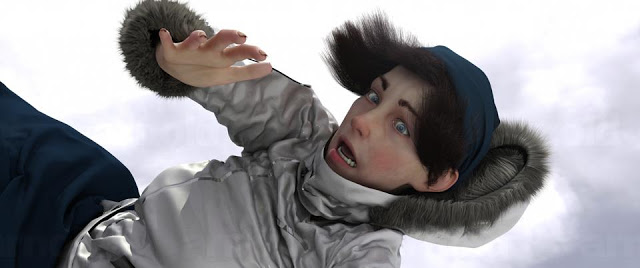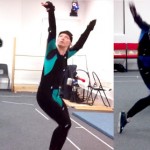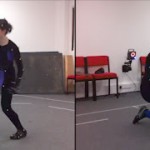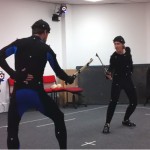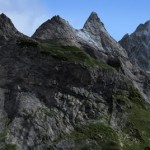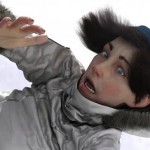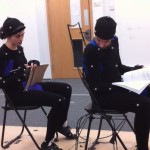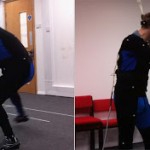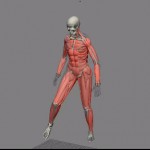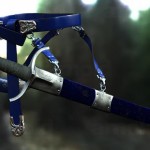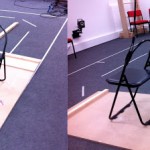As we’re still finishing up the last few shots of the trailer, i thought i’d add a little bit from our composer Pasha Curseli about the musical background to the project and how it formed the original story to our film:
It was the track below that started things off 4 years ago. It was written during the winter of 2010, whilst looking out of my window as the snow settled and slowly transformed my home town of Tsetsveki into a world of brilliant white roads and soundless streets. I wanted to capture the feeling it conjured up, the way snow seems to transport you to another world.
The result still conjures up images of that particular Winter for me, even if it does sound a bit like a Zelda level from the early 90s:
I then decided to re-orchestrate it, to give it a more classical feel:
I’m glad i bothered to develop it (partly spurred on by some comments i got about how 80s the original orchestrations sounded!) as it formed the first piece in the original “Stina and the Wolf” story; I imagined Stina wandering off and getting lost in the snow as she’s bewitched by it, having never witnessed anything like it before. As a result I decided to attempt a piece of “Peter and the Wolf” style narrative music, but taking the audience on a darker and more mythic journey. I wanted the main character to travel through different landscapes on a symbolic quest, in a similar way to characters in Angela Carter’s book of short stories: “The Bloody Chamber” in which she re-imagines popular fairy-tales into new, strange and often dark feminist myths of childhood transformations into adulthood.
The Original Story
The original tale comes from the first completed draft of the music and describes Stina’s story as she leaves her village and goes on a journey of transformation from human to wolf and from child to adult. A lot of it has changed since, as it’s evolved into a fully fledged screen play with fleshed out characters, plot and motivations. But many of the original ideas still pop up in the film in various forms. It’s unlikely that all of this music will remain in the final movie, as it will need to be scored specifically for the drama, but below is the story in its original form, with accompanying music.
Her signature melody and main instrument is an oboe and develops, intertwines is eventually replaced by the wolf’s instrument, a muted trumpet which develops through a series of hunting calls. Her imaginative life is represented by a harp, the devil she meets in the underworld is a flute and the village and it’s traditions are represented by a guitarviol (a crossbreed between a guitar and a viol that sounds a lot like a medieval viola-da-gamba):
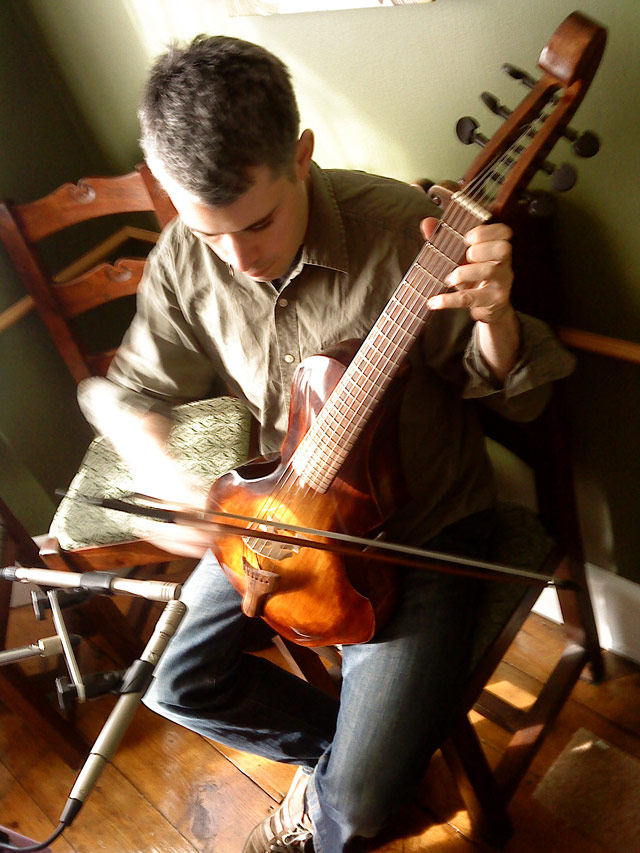
Stina & the Wolf (The original story and music)
1 – The Village
Stina lives in a small village high in the mountains. It is a place of tradition and ceremony. It’s stifling and oppressive. She is doing her chores. They seem to never end. She looks out of the window towards the distant snowy mountains. She watches an eagle as it soars in a giant arc above the highest peaks, disappearing into a cloud and leading her into a daydream of a better life. (A harp replaces the regemented guitarviols of the village, as her imaginative life awakens.)
She’s brought back to earth as her aunt scolds her.
2 – The Snow
The next morning she wakes to a glorious sunny day. She creeps out into the wild meadows accompanied by her trusty dog Griot: a cunning plan to escape her chores. It suddenly begins to snow. She has never seen snow before. It’s a new and exhilarating sensation. She runs into the blizzard, but is soon lost, although she doesn’t know it yet.
3 – The Caravan
Finding her way back to the village, she follows a strange caravan of brightly coloured wagons led by a charming devil. He is flanked by wild dancers in scary forest animal masks.
4 – The Baiting
The caravan sets up in the village square and erects a high-walled arena offering a test of manhood to boys on the threshold of adulthood. It soon draws a crowd of teenagers. Once entering, the boys begin to enthusiastically fight frightened-looking wolves, but are tricked into awaiting cages. The caravan leaves with the boys locked inside.
Stina follows.
5 – Transformation
Losing the caravan deep in the forest, she stops to rest by an icy lake. Lost and alone, she imagines the comfort and safety of her village, (The guitarviol melody is now reprised by the softer harp as she yearns for home.) Suddenly the moon appears. She fails to notice as it slowly turns blood red. She sees her reflection in the ice. She is transforming. On the far side of the lake a creature howls. She is surrounded by a pack of hungry winter wolves. As the light of the blood moon engulfs her, she becomes a wolf. She is hungry and joyful. She dives into the forest to feed with the pack. She follows as they tear through the trees, finally diving into the ground, sated, to rest under a giant tree.
6 – The Underworld
Stina wakes. She is underground. She is trapped. She makes her way down into the earth and into the underworld. She comes to a giant ocean. A lone wolf stands guard on a rock and calls to her (muted trumpet), saying she cannot enter. She answers (oboe). She persuades him to let her pass. He summons up the horde from beneath the waves. All the strange and fantastical creatures of the forest emerge and process down into the depths. They carry her down to the lair of the charming devil. She arrives through a giant wall of water (gong).
The lair is dark and empty. Suddenly the devil emerges. He sarcastically reprises Stina’s melody (flute). She replies softly (oboe) and they dance. Their melodies intertwine. He resists at first, but she soon teaches him to dance like her, and they move in harmony. Softened by the dance, he releases the boys and they escape into the wall of water. The horde carries them all back to the surface, traveling through all the levels of the underworld. Finally they burst into the brilliant mountain sunlight next to the village.
7 – Home
The village is full of snow and the villagers are gone. In their place are wolves (the original village guitarviol melodies are now played by trumpets) They are eating viscera and staining the white snow red. With her new found skills from the underworld, Stina casts a spell and returns the villagers to their human form and the boys reunite with their families (harp). She calls out to them, but her voice is now that of a wolf, and they throw stones. She watches the villagers going about their lives, only able to look in from the outside. She knows she can never go back. She has changed into something new. Her wolf form (trumpet) is now joined to her human form (oboe). She turns from the village, and runs into the mountains.
A new life awaits with the beasts of the forest.
~ The End ~

